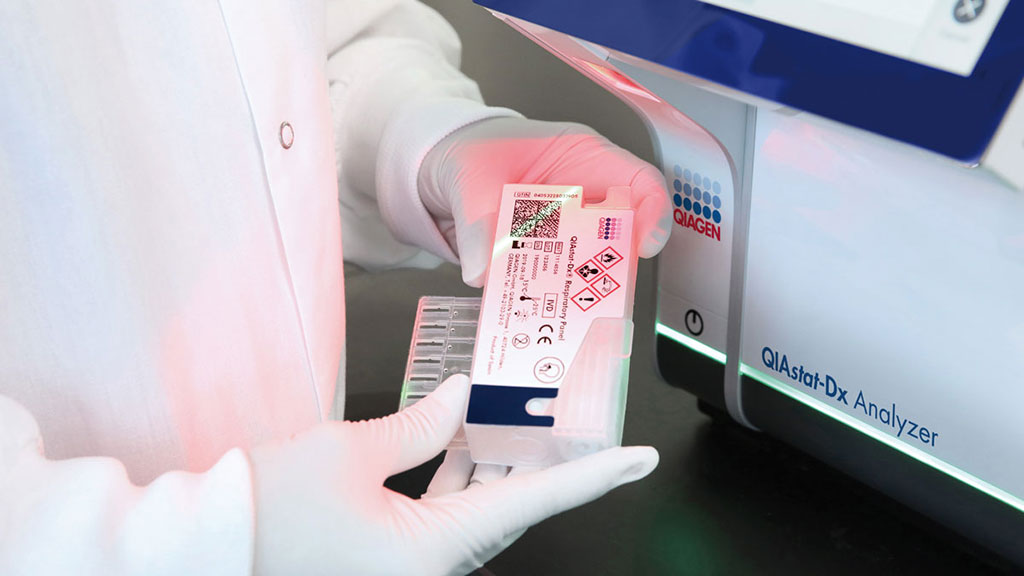Qiagen Launches Higher-Capacity QIAstat-Dx Rise and Enhanced Panels
Posted on 17 May 2022
QIAGEN N.V. (Venlo, Netherlands) has launched QIAstat-Dx Rise - a high-capacity version of the QIAstat-Dx automated syndromic system - and introduced enhancements to the menu of tests for the fully integrated one-step molecular testing solution that provides results in about one hour.
The launch of QIAstat-Dx Rise comes after the award of European CE-marking that significantly expands QIAGEN’s offering in syndromic testing, which is becoming an increasingly important tool in laboratories settings to test simultaneously for multiple pathogens from one sample. QIAstat-Dx Rise and its test cartridges are a closed system for hands-off sample preparation and processing. With a random access capacity of up to 18 different tests, it can provide diagnostic results for up to 56 tests in an eight-hour shift and 160 tests per day by using eight analytical modules. Building on the existing QIAstat-Dx Analyzer with up to four analytical modules, QIAstat-Dx Rise is a flexible new option for increased testing capacity.

Among other developments in the QIAstat-Dx portfolio, the CE-marked QIAstat-Dx Respiratory SARS-CoV-2 Panel has been expanded to test for an additional target, Chlamydophila pneumoniae, a bacteria that is cause of respiratory infections that can present with influenza-like symptoms. This panel can now be used to detect and differentiate among 23 viral and bacterial targets that cause respiratory infections. While C. pneumoniae typically causes mild illness, it can cause severe outcomes in high-risk populations, particularly older adults.
The CE-marked QIAstat-Dx Gastrointestinal Panel 2 has also been updated with new features for improved sample preparation and panel performance. This panel can be used to detect and differentiate among 22 viral, bacterial and parasitic targets that cause gastrointestinal infections. Importantly, the panel’s STEC target (Shiga-like toxin E.coli) reports the toxin content (stx1 and stx2). This information can be used to determine the risk of certain patient populations to Hemolytic Uremic Syndrome (HUS) and therefore can help provide the right patient monitoring.
QIAGEN has also released a software upgrade for QIAstat-Dx Analyzer that enhances the system’s cybersecurity, usability and connectivity features. The release of software version 1.5.1 enables users to configure their devices to perform mandatory External Quality Control tests. The new software adds to the QIAsphere cloud-based connectivity solution that enhances QIAstat-Dx capabilities in digital diagnostics.
“The launch of QIAstat-Dx Rise syndromic testing platform provides automated, comprehensive pathogen testing for higher-demand medical institutions,” said Jean-Pascal Viola, Senior Vice President, Head of the Molecular Diagnostics Business Area at QIAGEN. “Crucially, QIAstat-Dx Rise is compatible with our updated QIAstat-Dx Respiratory SARS-CoV-2 Panel, the QIAstat-Dx Gastrointestinal Panel 2, as well as all of our future assays.”
Related Links:
QIAGEN N.V.














